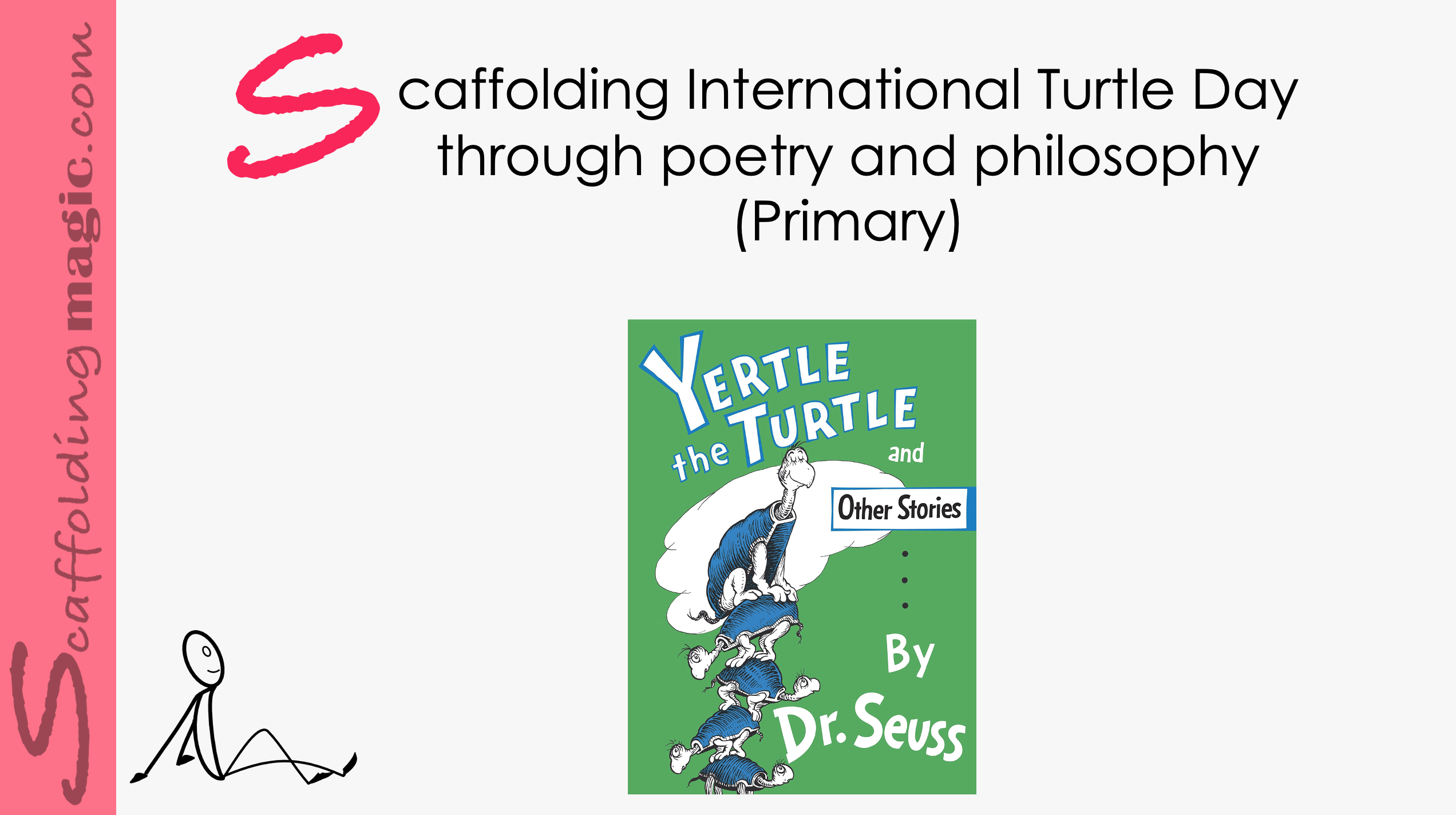- a children’s book writer…
- a poet…
$5.00
Seriously? A children’s book about turtles is philosophical? Oh yes it is! Theodor Seuss Geisel (Dr. Seuss), was not just a writer of children’s books, but a profound philosopher, a poet, a political advocate (sometimes controversial), and a promoter of critical thinking on all levels.
The International Thank You Day – celebrated by many on January 11th, others on June 11th – is a wonderful opportunity to help our students to focus on gratitude and add to positive forces in the world. Including gratitude in the educational environments is proven to improve relationships both in and outside of the classroom. Stressing affective factors in our lessons aligns us Vygotsky’s assertion (1978) that our students are more likely to step outside their comfort zone (ZPD) when they feel that they are supported and nurtured.
The International Thank You Day – celebrated by many on January 11th, others on June 11th – is a wonderful opportunity to help our students to focus on gratitude and add to positive forces in the world. Including gratitude in the educational environments is proven to improve relationships both in and outside of the classroom. Stressing affective factors in our lessons aligns us Vygotsky’s assertion (1978) that our students are more likely to step outside their comfort zone (ZPD) when they feel that they are supported and nurtured.
An important factor in translanguaging is knowing the different registers – when to use different tones, words, phrases. It’s important to know which terms are appropriate for specific circumstances. Especially in those languages (such as English) in which there is no formal or informal pronouns, register and tone transmit crucial information. To give our students an even wider prospects in their scholastic and professional lives, being comfortable with – or at least recognising – register is of the highest importance.
An important factor in translanguaging is knowing the different registers – when to use different tones, words, phrases. It’s important to know which terms are appropriate for specific circumstances. Especially in those languages (such as English) in which there is no formal or informal pronouns, register and tone transmit crucial information. To give our students an even wider prospects in their scholastic and professional lives, being comfortable with – or at least recognising – register is of the highest importance.
Higher-order level questions – those that elicit deeper thinking – help students to stretch their thinking and engage their curiosity, their reasoning ability, their creativity, and independence. These questions encourage students to open their minds, they offer opportunities to produce original thinking. A well-structured question sparks perspectives that might not have at first occurred to us; they encourage us to look at the issue from different perspectives. Higher-order level questions inspire fresh and sometimes even startling insights and ideas, they open roads for wider perspectives of the issue, and enable teachers and students to work together in constructing understanding. If we use effective questioning skills in the educational environment, we help our students to be more effective thinkers now and in the future.*
Higher-order level questions – those that elicit deeper thinking – help students to stretch their thinking and engage their curiosity, their reasoning ability, their creativity, and independence. These questions encourage students to open their minds, they offer opportunities to produce original thinking. A well-structured question sparks perspectives that might not have at first occurred to us; they encourage us to look at the issue from different perspectives. Higher-order level questions inspire fresh and sometimes even startling insights and ideas, they open roads for wider perspectives of the issue, and enable teachers and students to work together in constructing understanding. If we use effective questioning skills in the educational environment, we help our students to be more effective thinkers now and in the future.*
We all know by now (pretend that you do, even if you don’t!!!) that teaching critical thinking is a never-ending job. Critical thinking strategies are domain sensitive, which simply means that a strategy that works in art may not work in history, and a strategy that works in for a verbal deliberation may not work in a situation that requires physical movement, etc.
We look at all this as an opportunity to expand our practice. We can take this as an excuse to widen even further the variety of strategies we use in our classroom activities so that when our students go out into the world, they’ll be more prepared because of this little extra effort we put into our lessons.
We all know by now (pretend that you do, even if you don’t!!!) that teaching critical thinking is a never-ending job. Critical thinking strategies are domain sensitive, which simply means that a strategy that works in art may not work in history, and a strategy that works in for a verbal deliberation may not work in a situation that requires physical movement, etc.
We look at all this as an opportunity to expand our practice. We can take this as an excuse to widen even further the variety of strategies we use in our classroom activities so that when our students go out into the world, they’ll be more prepared because of this little extra effort we put into our lessons.
